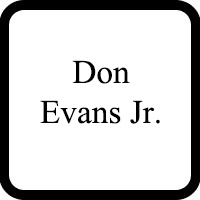 New Hanover County, NC RICO Act Lawyers
New Hanover County, NC RICO Act Lawyers
Sponsored Law Firm
-
 x
x

Click For More Info:
-
The Law Offices of Richard L. Cooper, P.A.
848 Brickell Avenue Suite 800 Miami, FL 33131» view mapDWI/DUI, Drug Trafficking, Felony Nationally Ranked Top 40 Under 40
With Richard L. Cooper you can expect a trusted confidant who will work diligently to fully understand your case and determine a road map to help you regain control of your life.
800-756-2781
Not enough matches for New Hanover RICO Act lawyer.
Below are all New Hanover lawyers.
Sponsored Lawyers
1-10 of 61 matches
Accident & Injury, Construction, Business
James Moore is a true Wilmington native. His parents, who own a construction company, have been building in the area for decades. A graduate of Hoggard High School, James decided to stay close to home and attend the University of North Carolina at Wilmington. While an undergraduate, James kindled a passion for law by taking a part-time job at Shipman & Wright as an office clerk. After earning his degree in business administration in 2003, James became a paralegal at the firm, and two years later entered Campbell University School of Law where he received numerous awards and honors. Upon graduation, James returned to his Wilmington roots and rejoined the Shipman & Wright team as an attorney. James focuses his practice in the areas of Personal Injury, Wrongful Death, Business Litigation, Construction Litigation and Mass Torts in both the state and federal courts. James’ impact as a lawyer and professional hasn’t gone unnoticed. He has been recognized by his peers as a “Super Lawyer Rising Star” in the legal profession and is also ranked as one of the Top 40 Lawyers under the Age of 40 by the National Trial Lawyers. James was recently recognized as one of the Top 10 Attorneys under the Age of 40 in North Carolina by the National Academy of Personal Injury Attorneys. James is also a registered Athlete Agent in North Carolina and a certified contract advisor for the NFL. He has represented and advised numerous professional athletes in contract negotiations and litigation matters. James is married to his beautiful wife, Rebekah. Outside of the office, James enjoys traveling, sports and spending time with his family.
(more)Accident & Injury, Real Estate, Criminal, Motor Vehicle, Estate
Firm has 35 years experience, continuing a family tradition of lawyers stretching back 100 years.
(more)Accident & Injury, Workers' Compensation, Car Accident, Wrongful Death
David & Associates PLLC is committed to representing your personal injury case and ensuring that you receive the quality care you deserve. Take action and call on someone who will listen to your needs, examine all the details, take into consideration all the factors, and get you results! Call on someone you can trust—David & Associates PLLC.
(more)Criminal, Juvenile Law, Accident & Injury, Traffic
Bruce A. Mason grew up in Fairmont, West Virginia. He graduated magna cum laude from West Virginia University in 1986 with a Bachelor of Science degree in business finance. Bruce attended the University of North Carolina at Chapel Hill School of Law and graduated in 1989. After working with the firm of Pennington and Wicks, Bruce founded Mason & Mason in 1993 as a general trial practice specializing in criminal defense with a concentration in personal injury representation. The North Carolina State Bar recognizes him as a board certified specialist in state criminal law. Bruce maintains an “excellent” rating by the national lawyer rating service of Martindale Hubbell. Bruce practices extensively in Federal Court and is a member of the C.J.A. Panel which is comprised of attorneys selected by the Federal Judiciary to represent clients in Federal Court by appointment. Bruce concentrates his practice in the areas of criminal defense , driving while impaired defense , traffic law and personal injury . He also provides representation in school suspension hearing, domestic violence protective action and professional employment defense
(more)Business, Bankruptcy & Debt, Commercial Bankruptcy, Lawsuit & Dispute, Estate
Clayton Cheek received his B. S. degree in English from Wake Forest University, his MBA from Wake Forest University and his J. D. from Wake Forest University. He is a member of the NC Bar Association, the American Bar Association and has been recognized by Super Lawyers. His focus is in Chapter 11, 7 and 13 Bankruptcy, Workouts and Alternatives to Bankruptcy, Business Entities, Contracts and Transactions, Estate and Succession Planning and Estate Administration. Before joining Oliver & Cheek, Clayton was a partner in the law firm of Hornthal, Riley, Ellis & Maland, L.L.P. in Elizabeth City, North Carolina, where he worked from 2003 to 2010. Before attending law school Clayton worked in a fund raising capacity with Ducks Unlimited, Inc., in Memphis, Tennessee.
(more)Consumer Rights, Bankruptcy & Debt, Personal Injury, Medical Malpractice, Accident & Injury
From a young age, Gary Shipman knew he was destined for the courtroom. After graduating from the University of North Carolina at Wilmington, he earned his law degree from Campbell University School of Law at the age of 24. Two years later, Gary founded his own firm, and he hasn’t looked back since. Gary has spent over forty five years trying cases nationwide, including complex and consequential cases involving personal injury, commercial litigation, professional negligence, and class actions. His courtroom presence and dogged advocacy have earned him a national reputation, and his peers have recognized him as one of the Best Lawyers in America since 2007 and as a Super Lawyer since 2006. At his firm, Gary prioritizes the needs of his clients. When the Great Recession hit, he shifted his practice towards business reorganization and loan workouts. He now represents debtors and creditors in lender liability actions and is a consultant for businesses and investors in various asset transactions. Gary is also passionate about giving back to his community. He has served as the former chairman of the New Hanover County Democratic Party and as a former member of the UNC-Wilmington Board of Trustees. He has also spent twenty years as a youth baseball coach and developed a full-service sports agency, Atlantic Sports Management, in 2013. Gary is certified as a contract advisor and agent by the NFL and NBA, and his clients include coaches and athletes. Gary and his wife, Mary Jo, have three sons. In addition to his legal and community work, Gary is a frequent speaker and lecturer in continuing legal education seminars and at his alma maters, UNC-Wilmington and Campbell University School of Law. Gary’s dedication to his clients, community and passion for sports has made him an exceptional attorney and leader in Wilmington.
(more)Mass Torts
Greg Jones is the founder of Greg Jones Law, P.A. and is licensed to practice law in North Carolina, South Carolina, Georgia and Texas. He has offices in both North Carolina and Puerto Rico often associating with other top trial lawyers across the nation in order to get his clients the best representation possible. He focuses his practice on plaintiff personal injury litigation involving product liability claims against pharmaceuticals and medical device manufacturers. He is an active member in a number of local, state and national trial lawyers associations and frequently travels to conferences and lectures, where he consults with other attorneys regarding personal injury representation.
(more)



 Richard L. Cooper Miami, FL
Richard L. Cooper Miami, FL AboutMiami Attorney at Law
AboutMiami Attorney at Law ServicesCriminal Defense
ServicesCriminal Defense







